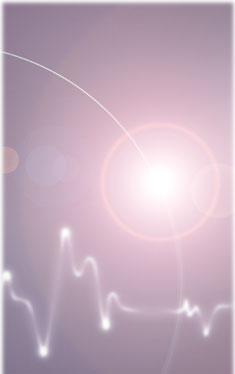| |
 Calls
for Court of Appeals Innovations Calls
for Court of Appeals Innovations
Incivility Takes a Toll
 Incivility
among lawyers and judges continues to rate as a top concern in the profession.
Respondents believe, by a hefty majority, that if the civility rules are
to have true potency, they must no longer be voluntary, but rather be
enforced somehow. This year, 76 percent subscribed to
that position, compared to 77 percent in 1999 and nearly 75 percent in
1997. Incivility
among lawyers and judges continues to rate as a top concern in the profession.
Respondents believe, by a hefty majority, that if the civility rules are
to have true potency, they must no longer be voluntary, but rather be
enforced somehow. This year, 76 percent subscribed to
that position, compared to 77 percent in 1999 and nearly 75 percent in
1997.
Still, some may ask: Why all this fuss about civility, or the lack of
it? A couple of new survey statements this year point to answers to that
question. First, 78 percent of respondents said that incivility adds significant
stress to their daily work as lawyers, judges, and court commissioners.
Clearly, incivility is detracting from law professionals' enjoyment of
what they do every day. Second, 89 percent of respondents felt that the
reputation of the law profession has declined in the eyes of the public.
Uncivil behavior may well be a key factor in that diminished reputation.
Part of what makes incivility such a tough problem is that it is at
once both a cause and an effect. As survey respondents noted, incivility
contributes greatly to stress on the job. On the other hand, stress can
easily spawn incivility. As Veith observes, "It's hard to be civil and
polite when you're overstressed. When I'm under lots of pressure, sometimes
I'm not the nicest person to be around." Those words may resonate for
many lawyers, judges, and commissioners, if they're equally as honest
in their self-assessments.
Heightened consciousness about the need for civility may be beginning
to improve the situation, says Milwaukee attorney Karri Fritz-Klaus, who
has been an active civility proponent for years. Seminars, articles, and
even bench-bar survey results have helped boost awareness. Still, abuses
persist. "When I see that a particular lawyer has been hired on a case,"
Fritz-Klaus notes, "I say to myself, 'Okay, I know how this one is going
to go down.' There are lawyers who will run you into the ground emotionally,
financially ... and it's those bad eggs the public focuses on."
Debate continues to swirl around the question of how to enforce the
civility rules, if they're to be no longer voluntary. Again this year,
respondents gave the biggest vote to judges, with 90 percent agreeing
that judges should enforce the civility rules. In fact, judges' average
score of agreement outranked lawyers', at 6.0 versus 5.6 (6.4 among court
commissioners).
One of many judges striving to find ways to foster civility in their
courtrooms is Milwaukee County's Hansher, although his approach is, as
far as he knows, unique to his county. At Hansher's suggestion, and with
the approval of his judicial colleagues, the rules of civility, as spelled
out in chapter 62 of the Supreme Court Rules, are now part of Milwaukee
County's written scheduling orders. If he sees uncivil behavior, "I just
say, 'You're not complying with paragraph eight of the pretrial scheduling
order,'" Hansher explains, "and I can impose sanctions."
The civility rules became part of the scheduling orders six months ago,
and Hansher has had to reprimand no transgressors since, although he did
fine a lawyer for uncivil courtroom behavior a couple of years ago. "I
think there's a general acknowledgement now among attorneys appearing
before this court that they're going to be held responsible for any violations,"
he says. That applies, he adds, to any uncivil behavior he encounters
during a case, whether inside or outside the courtroom.
Uncivil behaviors outside the courtroom, usually occurring during discovery
processes, are the most difficult to catch. Only 53 percent of survey
respondents agreed that judges sufficiently control discovery abuses,
with, not surprisingly, judges' average score ranking higher than lawyers'
(4.8 versus 3.8). The proportion agreeing was slightly higher this year,
however, than 1999's 49 percent, which, in turn, outstripped 1997's 43
percent.
Milwaukee County circuit court judge Elsa Lamelas is among those judges
who have tried to heed lawyers' calls for better control of discovery
abuses. Acting quickly to nip problems during discovery sends a clear
message, she says. For instance, if a lawyer calls to complain about another
lawyer's obstructiveness during a deposition, "As much of an interruption
as it is, I try to take a few minutes to respond to the complaint right
away," Lamelas says. "In the future, if the lawyer causing the problem
knows that I will take the call, maybe he or she will be less likely to
do it again."
Respondents also indicated support for other enforcement channels. Sixty-two
percent agreed that peer groups should enforce the rules, while 56 percent
felt the Office of Lawyer Regulation (formerly the Board of Attorneys
Professional Responsibility) should have an enforcement role. The latter
idea won less favor among lawyers, with an average score of 3.8, compared
to 5.0 for judges and 4.6 for court commissioners.
As for education about civility, 69 percent of respondents said mandatory
CLE for lawyers should include at least one hour on civility rules. And
79 percent felt the same should occur in mandatory judicial education.
One final note: Judges and court commissioners, too, manifest uncivil
behaviors at times, as noted in several respondents' anonymous written-in
comments. And while judges can reprimand lawyers when they cross the line,
lawyers have no such recourse.
The
Stress Factor
|
